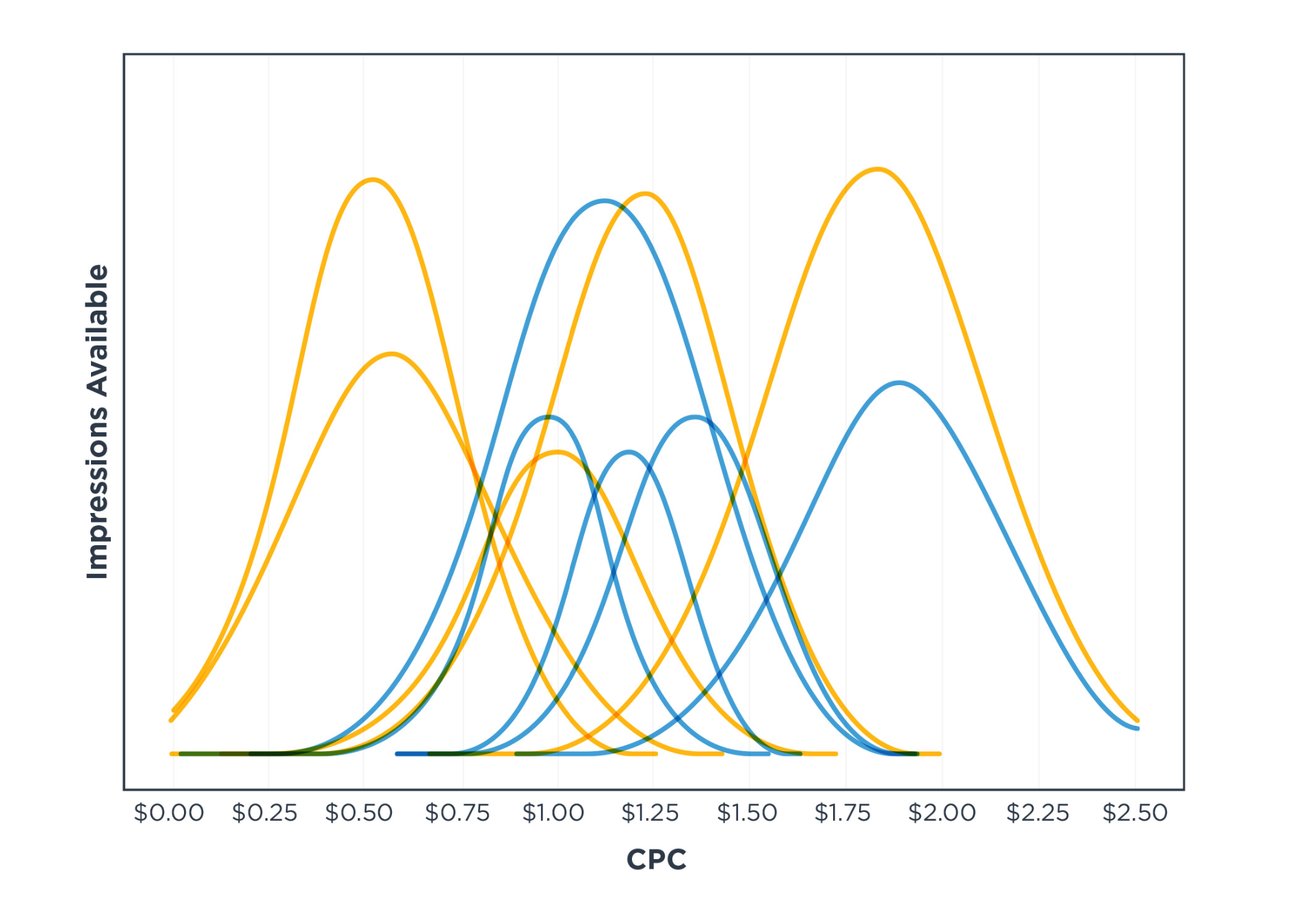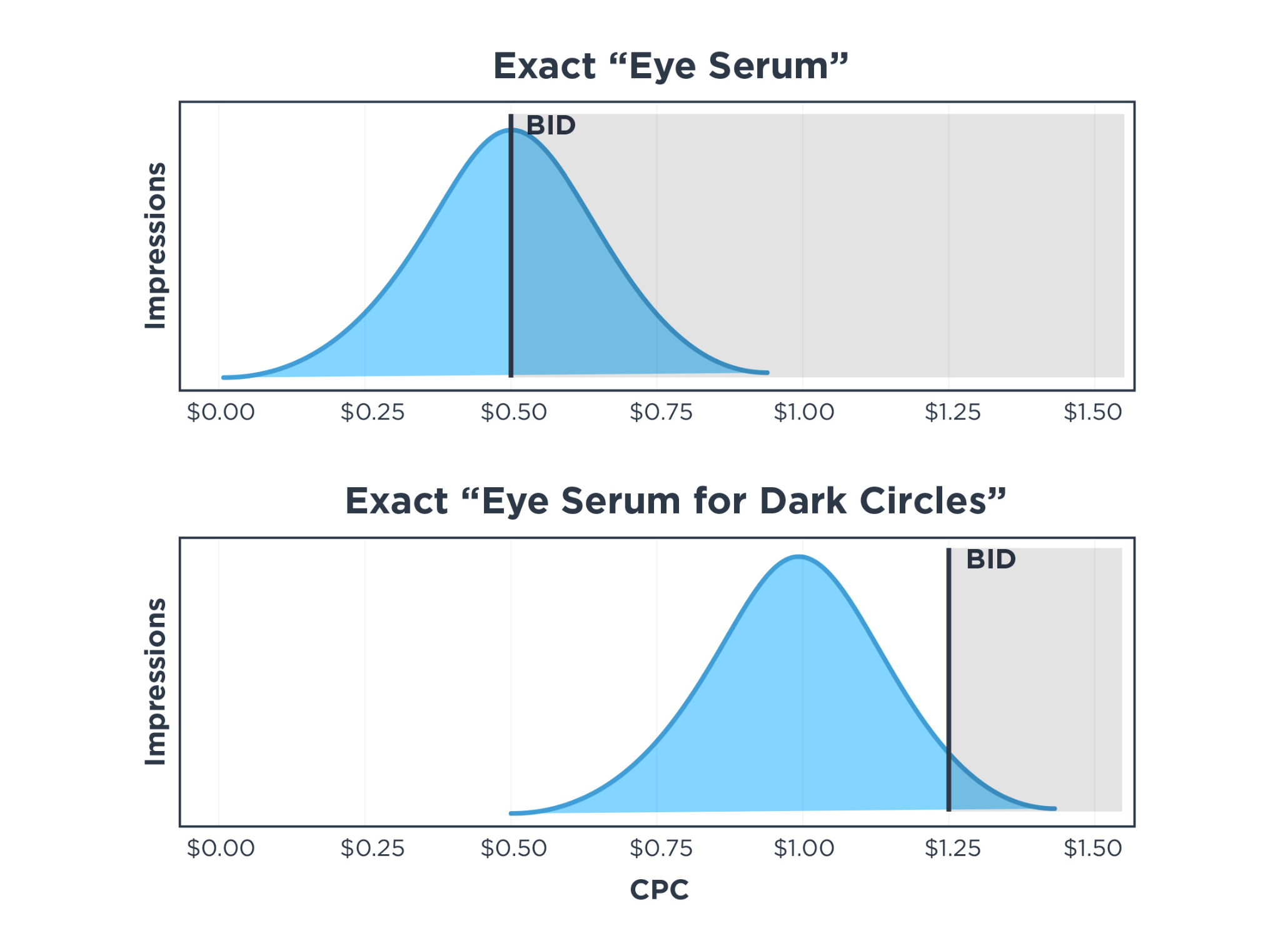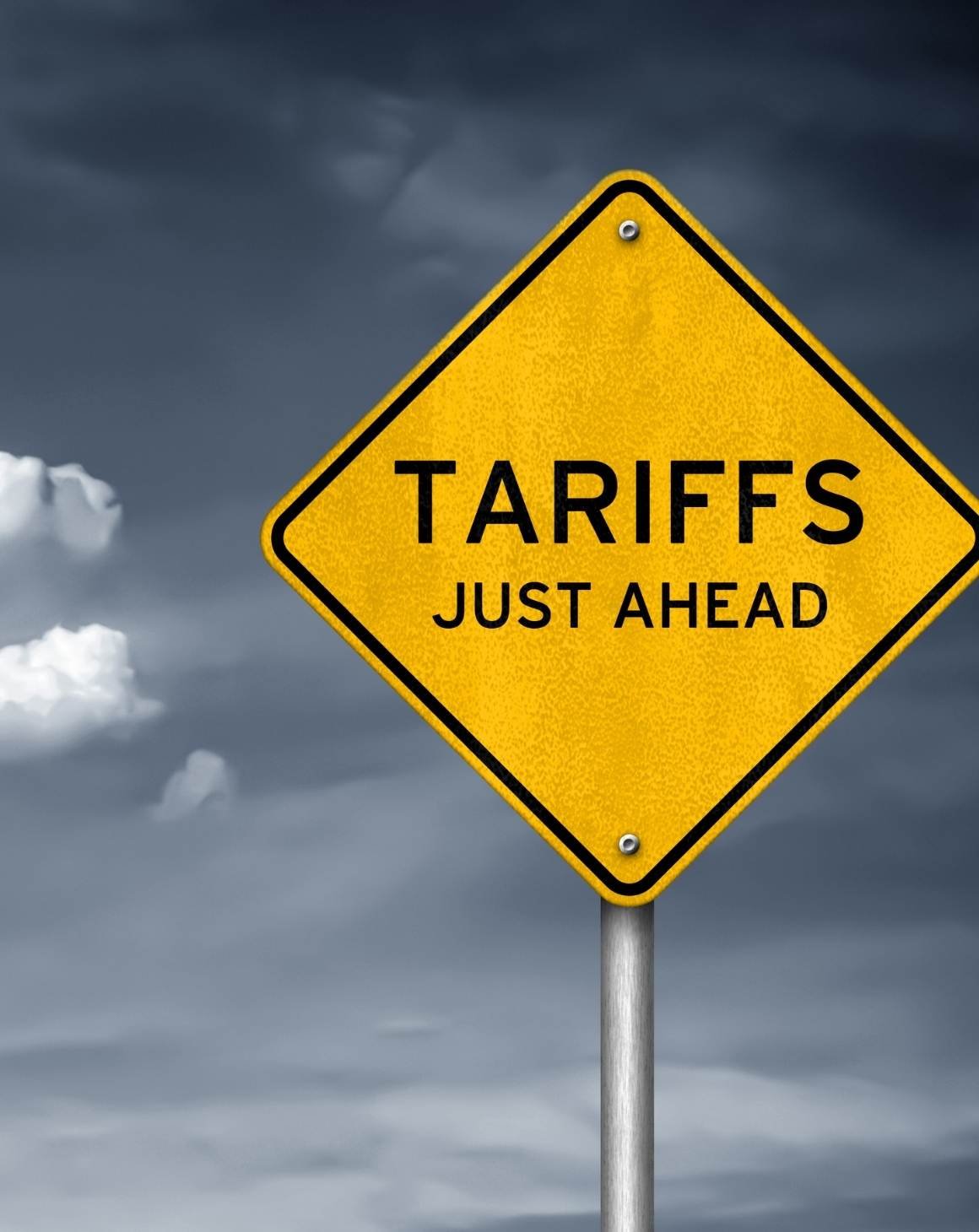You need to advertise to succeed on Amazon, and Search Term Isolation is a bidding strategy that can help you achieve your goals. Almost the entire first page of search results is taken up by Sponsored Brands and Sponsored Products ads since everything above the fold is sponsored. Organic placements appear below sponsored products, but even those placements are determined by the highest conversion rate, positive reviews, and relevancy. And Amazon is releasing new ad types all the time.
Advertising is the bread and butter of your growth on Amazon, and to advertise successfully and profitably, you need a proven strategy and bidding process that includes Search Term Isolation to power your approach.
Table of Contents
- What is the Search Term Isolation?
- Traditional Bid Management
- Search Term Isolation Bid Management
- Benefits of Search Term Isolation
- Specific Search Term Isolation Strategies
- How to Implement Search Term Isolation
- Search Term Isolation on Amazon: An Example
- Other Amazon Ads Strategies
- Why Search Term Isolation is Critical in 2024
- Who Can Do Search Term Isolation?
- What Makes Blue Wheel Different?
What is the Search Term Isolation?
Search Term Isolation is an advanced bidding philosophy on Amazon. At its simplest, Search Term Isolation is bidding on Amazon search terms that convert while negating search terms that don’t — so you only put money towards the best keywords with the best bids. While that explanation is relatively simple, the actual practice of Search Term Isolation is much more complicated.

As you can see in the image above, the process is extremely complicated and complex due to the high number of keywords! With Search Term Isolation, you can break down each parabola (keywords) individually to get more customization and increase profitability.
The image below is a very zoomed-in scale of how one would edit two keywords. Bids can individually be adjusted to account for the amount of impressions, desired budget, and CPC target.

Traditional Bid Management
The Process
- Every time an Amazon customer searches, Amazon creates an auction.
- If you are running a relevant ad and bidding on a keyword that can show up for that search term, Amazon will include you in the auction.
- If your bid is high enough, your ad gets shown, and you get an impression!
- If the customer clicks on your ad, then you pay Amazon (PPC or Pay-Per-Click)
- If they don’t click, you don’t pay anything.
- If your bid is too low, you don’t get the impression.
The Problem
With traditional bid management, you must bid the same amount on all Amazon search terms within a bucket — regardless of whether or not the term is profitable for you. The issue with this process is that each search term in an auto campaign has a different and constantly changing cost-per-click (CPC) distribution. If particular search terms in the group are bad for you, you can’t bid down. And on the flip side, if there are search terms that are good for you, you can’t bid up. This limitation wastes ad spend and restricts growth.
Let’s consider this scenario. You are selling women’s haircare and launching a new specialty product: sulfate-free shampoo for color-treated hair. If you’re targeting shampoo in a broad match type on Amazon, you’re targeting longer-tail terms, too, like shampoo for curly hair or shampoo for men.
The problem is you don’t even sell men’s shampoo! Uh-oh. In these research match types, your bid is being distributed across a big bucket of terms. Some are relevant terms that convert profitably, some convert but are not profitable, while others are ineffective and do not lead to sales. Unless you have complete control over your search terms, you’ll be paying to target search terms that are nowhere near relevant to your product — which can waste spending.
Search Term Isolation Bid Management
We developed an advanced campaign structure for each set of products. This structure allows us to optimize bids on the highest-performing Amazon search terms only — one isolated search term instead of a bucket of search terms. When the auto campaign or the research campaign drives a sale for a specific phrase, our proprietary technology grabs the search term in these two campaigns, puts it in the performance campaign in the exact match, so it only targets that search term, and simultaneously negates it out of the original two campaigns, isolating it in this performance campaign.
Auto Campaigns
Auto campaigns are when Amazon targets what they feel are the right keywords. These keywords are chosen based on the product title and description.
Keywords are “buckets” of search terms. With Amazon, you can only set one cost-per-click bid for each keyword. This means if you set a bid of $2 for the keyword pants, all of the related search terms like men’s pants, khaki pants, etc., will also have a $2 bid. If particular search terms in the group are bad for you, you can’t bid down. And on the flip side, if there are search terms that are good for you, you can’t bid up.
Auto campaigns are beneficial to gain an understanding of which keywords perform well and which aren’t converting. However, these campaigns only serve a purpose for a short amount of time to gain an understanding of each keyword’s performance. Aside from that, these campaigns typically waste spend.
Research Campaigns
In research campaigns, you get to indicate the keyword to target. Perhaps you’ve identified a keyword you’d like to explore — one that has performed well for you in your auto campaigns, and you’re looking to investigate further. For example, maybe the keyword white t-shirt has performed well for you, and you’re looking to see if similar keywords, like white t-shirt for men or white t-shirt large, perform just as well.
Research campaigns contain broad match and phrase match keywords. A broad match is your chosen keyword and any other word in any order. So, a white t-shirt could be a white t-shirt for men or a white cropped t-shirt. A phrase match is the keyword in that exact phrase order and any other word. So, a Superman t-shirt can have a word before or after it (men’s white t-shirt or white t-shirt large), but not in between them.
In addition, research campaigns are great for finding longtail keywords. Longtail keywords generally convert better, as they are more specific than a simple, generic keyword. For example, a longtail keyword for a white t-shirt might be a men’s white t-shirt pack of 6. This longtail keyword contains more specific terms, meaning the consumer is searching for something very specific. Usually, longtail keywords perform well because the consumer is closer to the point of purchase. Hopefully, you have the Amazon Buy Box to get them even closer to purchasing.
Performance Campaigns
In performance campaigns, bids are optimized on the highest-performing search terms only: one isolated search term instead of a bucket of search terms. The keywords that are in performance campaigns have proven to have a high conversion rate.
Performance campaigns only contain exact match keywords. An exact match keyword is exactly that term, so your keyword Superman t-shirt can only be Superman t-shirt. Performance campaigns are usually left empty at first unless you have a solid idea of a specific exact keyword that performs well for your brand. However, to fully understand the scope of an account, auto campaigns are usually run first, and high-performing keywords are automatically filtered in later.
Benefits of Search Term Isolation
Search Term Isolation allows you to manage bids of each individual search term, not buckets of keywords. So, you are only bidding on profitable keywords and can adjust the bids of each individual search term, maximizing profitability. You can set bids based on ACoS and profitability goals. This allows you to not only isolate profitable search terms but also optimize those search terms to be the most profitable for you.
You might be trying to hit a target ACoS, which could be different for each keyword. Being able to adjust the bid on each individual keyword allows you to maximize your bids individually to avoid wasted spend, so you are more profitable overall. Or, you might be trying to reach a certain revenue goal, in which case ACoS might not be a priority — as long as you reach a certain revenue threshold from your ad sales.
Specific Search Term Isolation Strategies
Ranking Strategy
Implementing a ranking strategy is an ideal time to utilize the principles of Search Term Isolation. Because you can control the spend of individual keywords and monitor their success, you can more easily conquer the SERP of a specific keyword. There are many reasons you’d want to launch a ranking campaign. Most commonly, you would seek to do this if you are looking to assert your dominance in a space for a certain search term. (If you think you are ranking low because of negative reviews, learn how to remove negative reviews.)
For example, let’s say you’re a new running sock brand who wants to assert yourself as a leader in the space. You might target the keyword running sock and run Sponsored Product Ads for four different products as well as a Sponsored Brands ad, so your products completely take over the content above the fold on the search results page.
The goal of these campaigns is to make your brand name and products fully associated with the keyword. It’s often used for product launches, or as part of a larger strategy to jump-start sales and gain reviews. This is an expensive strategy, so it should only be used for a specific amount of time in a specific circumstance.
Branded Search
Maintaining branded search coverage is a key part of most brands’ strategies on Amazon. For many brands, this is the bulk of their Amazon advertising strategy to maintain their brand presence without spending a ton of money on the platform.
Search Term Isolation can still help in maintaining branded coverage, even though bids for these keywords are usually relatively low because competition is also low. In addition, ACoS is usually lower for branded search terms because those searching for your brand name are usually primed to buy, while the cost is relatively low in comparison.
Regardless, you can utilize the principles of Search Term Isolation to ensure your products appear at the top of the SERP and aren’t overtaken by competitors. Maintaining branded coverage is crucial to many brands’ strategies on Amazon. Search Term Isolation will help you reach that goal, whether it’s your sole strategy or part of a larger one. (A side note: you should invest in creating a Brand Store for your brand, especially if you want full coverage on Amazon.)
Non-Branded Search
For many brands new to Amazon Ads, non-branded search is unfounded territory. Usually, brands just seek to maintain branded coverage without gaining new customers through other Amazon search terms.
However, non-branded search is essential to growing your Amazon business, and it should absolutely be supported by a Search Term Isolation strategy. Because you’re consolidating spend behind profitable keywords, you will be able to more easily put money behind profitable non-branded search terms, as well as branch out into new search terms you want to conquer.
When expanding to non-branded search terms, each keyword will have varying degrees of profitability. Search Term Isolation makes it possible to avoid wasted spend and make each keyword as profitable as it can be while staying within your ACoS or revenue goals. Ideally, because you’ve used this bid management technique to optimize other areas of your business on Amazon, you have “extra” money from reducing wasted spend to invest in expanding your business through non-branded search.
Revenue Goal
When it comes to goals for Amazon, some businesses are solely concerned about revenue, regardless of budget. If you view Amazon as a separate revenue stream, not just covering your bases for your brand, you’ll likely seek to hit a specific target. You need an advertising budget behind your Amazon account to scale your business. Amazon is a pay-to-play platform, so you need to invest in advertising to grow. You must put more budget behind an aggressive advertising strategy to achieve higher revenue.
Search Term Isolation can help you achieve your revenue goals. Because you are avoiding wasting spend on unprofitable search terms, you will naturally be able to put more money behind terms that are going to actually make you money. Reaching your revenue goal is much easier with Search Term Isolation, even if you don’t have tons of extra capital to invest in advertising.
Many brands shy away from revenue-based goals because they require additional capital investment on the advertising side. However, with Search Term Isolation, you are avoiding wasted ad spend, which gives you more money to spend on profitable ads.
ACoS Target
On the flip side, many brands want to hit a specific ACoS, or Average Cost of Sale, to determine the profitability of their ads. While revenue-based goals are preferable for some brands, many choose to instead determine the success of their campaign by monitoring ACoS. Hitting an ACoS target is preferable for many brands, as it indicates the success of an advertising campaign. ACoS is calculated by dividing your ad spend by your ad revenue, so you can see a direct correlation between how much money you spent vs. how much money you made.
If you’re looking to consistently reach a specific ACoS for your advertising campaigns, Search Term Isolation can help you reach that specific goal — whether you’re looking to lower your ACoS or maintain a specific target ACoS. By avoiding wasted spend and putting money behind profitable search terms, you’ll be able to maintain a more stable ACoS with a dedicated account manager who ensures you’re hitting your target goals.
Additionally, you or your agency partner might come up with an ACoS target that will open up your budget and ad spending to allow you to scale. So, rather than choosing an ACoS based on just maintaining results, you might determine your target ACoS based on a primary metric or goal, and run an open budget when that ACoS is achieved.
How to Implement Search Term Isolation
Search Term Isolation requires a delicate balance between technology that automates processes and smart humans who manually make changes. The marriage between technology and humans can’t be overlooked when it comes to this bid management system, especially if you have a large number of ASINs. Whether your account is simple or complex, whether you have just a few products or hundreds, and whether you’re running ten campaigns or 1,000 campaigns, Search Term Isolation can be implemented successfully across your account.
Powered by Technology
Technology automates the process of Search Term Isolation, making it easy to manage your entire catalog of product listings on Amazon. When the auto campaign or the research campaign drives a sale for a specific phrase, our proprietary technology grabs the search term in these two campaigns, puts it in the performance campaign in the exact match, so it only targets that search term, and simultaneously negates it out of the original two campaigns, isolating it in this performance campaign.
While you could technically implement Search Term Isolation without any technology, the process would be very tedious and time-consuming. Having to do this process manually requires a level of attention that is nearly impossible if you have more than a few product listings. Including technology that automates the process allows you to implement Search Term Isolation across your entire product catalog quickly and efficiently.
Managed by Humans
Although technology is crucial to effectively implementing Search Term Isolation, the most crucial component of this bid management technique is marketing-savvy humans who manage the account. Marketers are necessary for manual bidding adjustments for certain keywords.
In addition, humans are needed to develop specific strategies based on the specific needs of the brand. Different strategies are needed to reach various goals. For example, conquesting a specific search term requires a different strategy than expanding into a non-branded search term, which is different than owning a branded search term.
Without an Amazon Ads specialist to manage the account, the automation could not achieve success on its own. While the system can manage itself to a certain extent, people are essential to the sustained success of Search Term Isolation. From daily account monitoring to a manual altering of Amazon search terms, dedicated marketers are the lynchpin to Search Term Isolation’s success.
Search Term Isolation on Amazon: An Example
Here is a simplified version of Search Term Isolation, summarizing all of the steps we’ve outlined above!
Let’s say your brand sells shampoo. You turn on an auto campaign, which bids on keywords such as shampoo, rose shampoo, shampoo for curly hair, and cruelty-free shampoo. Each of these keywords has varying degrees of success for your brand. The keyword shampoo is not profitable for you at all — big-name brands completely dominate the space with their large budgets for this high-volume keyword, and you just can’t compete. But with the auto campaign, it keeps running. A savvy Amazon advertiser would recognize this, and negate this search term from all campaigns, choosing to go after more profitable keywords.
Rose shampoo drives quite a few sales for your brand. If you have the technology like Blue Wheel does, this keyword will be moved into the performance campaign as an exact match, and negated from the Auto and Research campaigns. Now, this keyword can do its best work!
But perhaps the keyword shampoo for curly hair doesn’t accurately describe your product, so consumers are confused about who your product is actually for. An Amazon Ads specialist would negate this keyword from all campaigns and likely replace it with a keyword that accurately describes your product — something like volumizing shampoo.
Of course, this is just a quick snapshot of what Search Term Isolation looks like in play. As we’ve stated before, this management technique is complex, especially if you have a large catalog of products. Managing your account requires a balance of powerful technology and talented humans.
Other Amazon Ads Strategies
Many Amazon sellers who are none the wiser turn on Auto Campaigns and think their advertising efforts are done — after all, the name implies that the campaign runs itself! However, as we’ve previously discussed, Auto Campaigns have their limitations. These campaigns are effective at discovering new keywords, but they equally prioritize all keywords, regardless of how profitable they are.
Other sellers may decide to enlist a full-service agency to tackle their entire Amazon Ads strategy. While these agencies certainly have their benefits for certain situations, there are marked limitations — and usually, advertising is the first faulty characteristic. Many of these agencies will simply turn on an Auto Campaign and let it run, assuming that Amazon Ads is a set-it-and-forget-it platform. In reality, it requires constant optimization and is essential to scaling your business.
Why Search Term Isolation is Critical in 2024
As Amazon continues to assert its dominance in the e-commerce space, Search Term Isolation will become even more important as more brands sell on the site and more shoppers flock to Amazon for all of their shopping needs.
We saw how essential Amazon became as people shifted to online shopping during the COVID-19 pandemic. Amazon continued to dominate the e-commerce industry as people altered their shopping habits to be solely online. From groceries to toilet paper to beauty products, Amazon has become a one-stop shop for regular shopping more so than it had been ever before. With the convenience and speed of Amazon Prime, shoppers now expect to be able to buy their essentials online.
As these trends continue to increase, Search Term Isolation will become even more important for sellers. According to Seeking Alpha, the “advertising segment is turning into one of the strongest business areas for Amazon. The company has successfully broken the duopoly of Google and Facebook in the digital ad market. It is quite certain that Amazon will expand its current market share in the ad market as its growth is much higher than Google and Facebook. Amazon’s ad business is also the fastest-growing segment within the company, easily beating the growth rate of AWS, online sales, and the subscription segment.”
If your brand wants to scale your Amazon Ads business, you need to implement Search Term Isolation in 2024. Not only is this strategy essential to reaching new customers, but it’s also crucial for beating out the fierce competition, which will only get more intense as time goes on.
Who Can Do Search Term Isolation?
Blue Wheel: Powered by AI. Managed by People.
Blue Wheel is a new breed of agency. We combine our powerful AI technology with skilled Amazon experts to give brands the cutting edge in a competitive industry. The Amazon marketplace is more crowded than ever, and with every brand trying to get a leg up, you should entrust your Amazon advertising to the experts. Advertising is the key to growth on Amazon.
Whether you’re looking to lower ACOS, increase sales, or boost revenue, our Amazon team will develop a custom advertising plan to help you reach your goals.
What Makes Blue Wheel Different
Blue Wheel is an omni-channel marketing and operational partner delivering excellence in digital commerce — from Click to Ship. We’re a new breed of agency, supporting brands through marketplace management and performance advertising. With over $1B in revenue managed for our clients, we’ll help your brand from click to ship, scaling your brand’s sales across DTC, Amazon, Walmart, eBay, and retail.
Our History
Our journey on Amazon actually began as sellers — we grew into a Top 8 Figure Seller on Amazon in less than two years, a feat that less than 1% of Amazon sellers reach. We knew we had cracked the code on something special. It wasn’t luck, and it wasn’t coincidence. We had discovered a way to use advertising as the primary means of growth, and it was profitable.
We pioneered the use of Search Term Isolation on a larger scale with other brands after we saw the success it had on our own brand on Amazon. After a few years, we developed our proprietary technology that has allowed us to implement Search Term Isolation across all our accounts. As we’ve grown our team of Amazon experts, we’ve been able to help more brands grow their companies on Amazon.
Now, as an official Amazon Ads Partner, we’re offering our expertise to sellers across a variety of verticals, from beauty and hair care to apparel and supplements — and more!
Our Proprietary Technology
Let’s get into the weeds a little bit. Because if you’re trying to implement Search Term Isolation on your own, your head will start spinning. It’s totally possible, but at the same time, it will be incredibly tedious and complex. Working with a technology that can automate certain processes and give you the specific tools necessary to manage complex accounts allows you to scale Search Term Isolation as your business grows. So, even if you don’t think you need it now, because the principles of Search Term Isolation are so proven to help your brand grow, you will likely need the assistance of powerful technology to help implement it on a grander scale.
At Blue Wheel, we couldn’t find a technology that gave us the tools we needed to serve our clients best. We tried to find software that would give us the flexibility and customization needed to manage complex accounts, but nothing quite fit the bill. Numerous software solutions entirely automate the process, with no wiggle room to customize keywords and strategies. Yet other software options didn’t have any automation. So, the process would have been entirely too tedious and complex, especially for accounts with a high number of ASINs.
So we created our own — Companion. We developed this proprietary technology because we needed total control and customization to effectively and successfully manage Amazon accounts.
With Companion, we can harvest keywords and negative keywords in real time, giving our clients the competitive edge they need to succeed in a crowded marketplace. Our technology seamlessly handles the bidding of individual keywords, automatically negates keywords, and allows us to fully customize your account. Another key advantage of this technology is the ability to edit keywords in real-time.
Our People
One of the most impactful parts of Blue Wheel is our people — the Amazon experts who are actually managing your account. Our team provides a human touch necessary to drive your business forward because ad tech alone is no replacement for Blue Wheel’s brainpower.
These Amazon Ads specialists don’t just look at your account once a day and call it good. They are dedicated to strategically planning, implementing, and monitoring advertising campaigns for your account. While they rely on our proprietary technology to take care of the tasks that can be automated, they also diligently plan out strategies that will help your business reach its goals, whether you want to increase product visibility and ranking, lower ACoS, boost revenue, or test a new ad type.
Without our people, Blue Wheel would just be another SaaS company that might help streamline some processes but doesn’t contribute to any markable growth in your brand on Amazon. You could plug and play, but you would likely not see much movement. Software alone can’t work to help you reach specific business objectives.
But with these experts on our team, Blue Wheel is truly a partner with your brand on Amazon. You’ll always work with real people who have a deep understanding of how Amazon works and your brand’s specific goals. As your industry changes, our team pivots its strategy. When your business has new goals, we adapt our strategies to align with yours. When Amazon releases an algorithm or policy change, our team is ready to quickly address any possible changes. And Search Term Isolation is at the core of everything.
See how Search Term Isolation can help increase your sales and decrease your ACoS. Contact Blue Wheel Today!
Take Control of Your Amazon Advertising with Search Term Isolation
Amazon’s advertising landscape is more competitive than ever, and success depends on strategic, data-driven approaches like Search Term Isolation. Whether you're looking to increase sales, optimize ACoS, or dominate new markets, this advanced bidding strategy equips you with the tools to succeed.
At Blue Wheel, we combine cutting-edge technology with unparalleled expertise to help brands thrive on Amazon. Our proprietary platform, Companion, and our dedicated team of Amazon specialists work together to implement Search Term Isolation at scale, delivering measurable results.
Ready to transform your Amazon advertising strategy?
Ready to elevate your Amazon advertising? Explore our Amazon Marketing & Advertising Agency page to learn more. Let’s work together to maximize your performance and achieve your goals.








.png)
.png)
